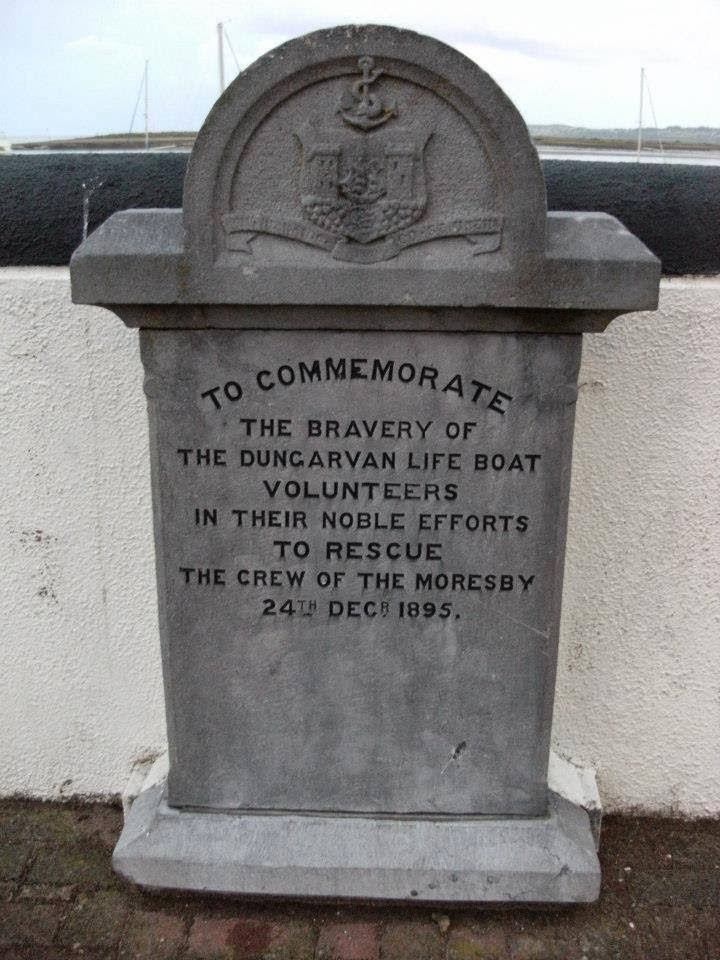The Moresby Buoy
The Moresby was built at Whitehaven, Cumberland in 1882 She
carried two lifeboats, a cutter, and a gig. On 21st December 1895 the Moresby
left Cardiff, with a cargo of coal bound for South America and a crew of 23
including the Captain, Caleb Francis Coomber, the captain’s wife Edith Isabella
and their 2 year old daughter Ivy.
On December 23rd the ship ran into rough weather. At about
1p.m. the Moresby followed the schooner, the Mary Sinclair into Dungarvan bay.
The Mary Sinclair was also in difficulty at this point. The keeper of
Ballinacourty lighthouse saw that both ships were in distress and headed for shore at Clonea beach.
The Mary Sinclair ran aground on the beach but the Moresby
changed course. It steered towards the lighthouse and set anchor,
about ¾ of a mile from the lighthouse. The Ballinacourty Lifeboat set out for
the ship but the crew decided to stay with the ship.
During the night the weather deteriorated and the Moresby sent out distress
signals.
About 4.30 a.m., the anchor broke and
the ship went on its side. The captain, his wife and child, along with eleven crew members had to climb on the mizzen rigging. By
11a.m. the masts had dropped closer to the water. The crew saw no sign of a
lifeboat coming to their rescue and decided to swim for shore. The Captain put
his daughter on his back and jumped into the sea, followed his wife. But an ebb
tide pulled them away from the coast.
The Ballinacourty lifeboat, manned by a volunteer crew from
Dungarvan, set out to rescue the crew, most of whom were in the sea.
The bodies of the captain, his wife and daughter were washed ashore. All three are buried together in the one grave. The Moresby was wrecked in Dungarvan Harbour on Christmas Eve 1895. Twenty out of the twenty five aboard were drowned.
In 1899 a wigham light buoy was placed at the site of the
wreck. This buoy marked the wreck until 20th December, 1906. It was beached for
some years and in 1930 the lamp was reconditioned and the buoy was put back on site, until August 1954 when it broke its moorings in a gale, and was
brought in to the Causeway.
 |
| Photo by me |
The restored bouy sits on the Causeway which joins Dungarvan and
Abbeyside as a memorial to those who died aboard the Moresby and as a tribute to the gallant men, who manned the lifeboat, one
of whom lost his life.
















No comments:
Post a Comment